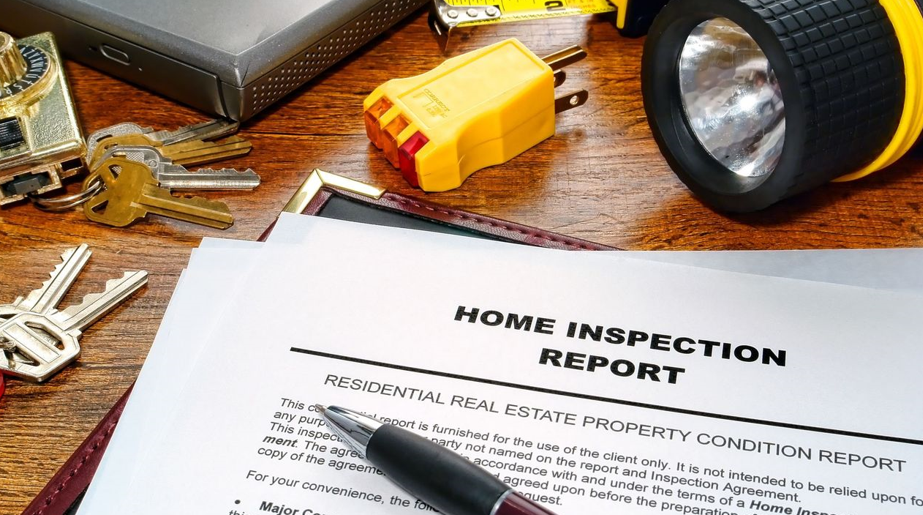Questions To Ask Before You Waive a Home Inspection

In competitive markets, some buyers will want to waive the home inspection contingency in an effort to present a more appealing offer to the sellers. What do you need to know before skipping this important part of the home buying process?
In the currently hot real estate market, many buyers are resorting to somewhat dramatic measures to increase their likelihood of securing the home they love. Buyers are proposing all cash offers, bidding thousands of dollars above asking price and even waiving home inspections. However, the act of waiving inspections is less common than some make it out to be; most buyers, sellers and agents still recognize the importance of the inspection.
“Prior to this housing market, 80 to 90% of homes were inspected. Now, 70 to 80% of homes are being inspected. So, the trend of waiving home inspections isn’t as widespread as the industry makes it seem,” explained Adam Long, HomeTeam Inspection Service President. “There are a lot of agents and buyers that will never make or accept an offer without an inspection.”
Should a buyer or seller find themselves in a situation where waiving the inspection seems like a viable option, there are a few things to consider before committing to a contract with no home inspection contingency.
Both Parties Should Be Clear on What the Waiver Means
According to Joshua Blumen, Esq., “The inspection gives you the time and opportunity to verify the condition of the house or condo before you sign a Purchase and Sales Agreement and are required to put substantial down payment money on the line.”
In other words, waiving the inspection contingency means that you agree to handle any issues that come with the property, and you agree to receive it in “as-is” condition.
For the seller, a waived home inspection means that they will be protected from any price or repair negotiations that may arise. A waived home inspection does not mean that the buyer cannot get an inspection, but it does mean that the results of any inspection cannot be used as leverage during negotiations.
“Every real estate contract has a stipulation with what type of inspection is included,” he said. “Contracts may have the option that sale of the house is not contingent on the inspection. This just means that the buyer cannot use that inspection to get out of the contract.”
Have All Known Issues Been Disclosed?
Sellers are required by law to disclose anything about the home that may be wrong, and failing to do so can lead to bigger problems later on. However, an inspection can be critical in ensuring all of these shortfalls are addressed.
“Home inspections can bring up things the owner knew about but didn’t realize was an issue,” Long said. “For example, if a homeowner repaired something in a nontraditional way, they may not realize that this is something that must be disclosed. The inspector will see what has happened and report the potential issue.”
Specific disclosure requirements may differ from state to state, but the overarching requirement is that the buyer receives a thorough, transparent report of any issues. Regardless of how or why a potential issue is left out of that disclosure, failure to disclose can lead to major issues for the seller.
What Are the Other Legal Implications?
Long explained that there is a common misconception about who an inspection — or lack thereof — protects.
“Sellers often think not having an inspection protects them, but it actually doesn’t. It hurts everybody involved,” he said. “If someone waives an inspection and the contingency, the concern is not just for the buyer. The buyer may realize there are issues they can’t afford to fix or safety issues that can impact their health, but there is also a higher likelihood of the buyer suing the seller and the agents.”
This harkens back to the issue of legally-required disclosure. While some sellers may feel it’s better to waive the inspection to avoid any nitpicking or overzealous inspectors, the inspection actually protects them just as much as the buyer.
If an inspection is waived and certain issues go unnoticed and unreported, legal action can be taken. “You don’t have to win the case to sue someone, but the seller will still have to go through the process and pay legal fees. It can be a very costly process,” Long explained.
Understanding all of the implications of inspections, reporting and the homebuying contract is critical in deciding whether an inspection can, or should, be waived.
ABOUT HOMETEAM INSPECTION SERVICE:
Founded in 1992, HomeTeam Inspection Service is a full-service, independent home inspection franchise serving home buyers, sellers and real estate agents. For nearly 30 years, HomeTeam has built a reputation for providing professional, reliable, efficient and accurate inspections on both residential and commercial property, focusing on electrical and plumbing systems, HVAC, exterior and siding, gutters and drainage, mold inspections, air quality reports and much more. Unlike other inspection companies, HomeTeam sends a team of certified inspectors to every appointment in order to provide a better and faster inspection, every single time. The brand’s reputation for excellence has made them a top choice among real estate agents. Now, HomeTeam Inspection Service has grown to include over 200 territories nationwide.



